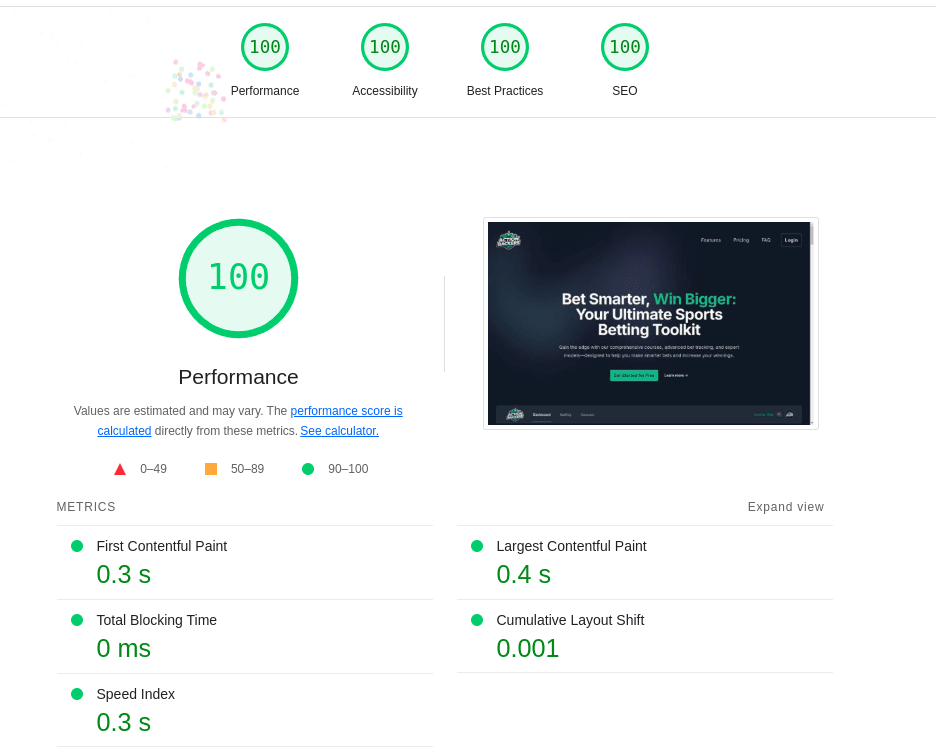In today’s fast-paced digital world, speed is everything. From instant messaging to same-day delivery, consumers expect quick results—and your website is no exception. A fast-loading website isn’t just a nice-to-have; it’s a crucial component that can significantly impact your business’s success. In this article, we’ll explore why website performance matters and how a faster website can propel your business forward.
The Need for Speed in the Digital Age
With the proliferation of high-speed internet and mobile devices, users have become less tolerant of slow-loading websites. Studies have shown that even a one-second delay in page load time can lead to a noticeable drop in user satisfaction. In an era where competitors are just a click away, you can’t afford to keep your visitors waiting.
Impact on User Experience
First Impressions Matter
Your website often serves as the first point of contact between your business and potential customers. A slow website can create a negative first impression, suggesting unprofessionalism or lack of reliability.
User Behavior Statistics
- Bounce Rates Increase with Load Time: According to Google, as page load time goes from 1s to 3s, the probability of bounce increases by 32%.
- Reduced Time on Site: Slow websites discourage users from exploring further, reducing the time they spend on your site and the likelihood of conversion.
SEO Benefits
Google’s Ranking Algorithm
Website speed is a known ranking factor in Google’s search algorithm. Faster websites are more likely to rank higher in search results, increasing visibility and driving more organic traffic to your site.
Mobile-First Indexing
With Google’s shift to mobile-first indexing, the performance of your mobile site plays a significant role in search rankings. Ensuring fast load times on mobile devices is essential.
Conversion Rates and Revenue
Correlation Between Speed and Conversions
- Increased Conversions: Amazon reported that every 100ms of latency cost them 1% in sales.
- Customer Satisfaction: A study by Akamai found that 47% of consumers expect a web page to load in 2 seconds or less.
Real-World Impact
A faster website leads to:
- Higher Conversion Rates: Users are more likely to complete desired actions, such as making a purchase or filling out a contact form.
- Increased Revenue: Improved user experience and higher conversions directly contribute to your bottom line.
Common Causes of Slow Websites
Understanding why websites are slow is the first step toward improvement.
Excessive Plugins or Scripts
- Unnecessary Code: Third-party plugins and scripts can add significant load time.
- Conflicts and Redundancies: Multiple plugins performing similar functions can slow down your site.
Poor Coding Practices
- Inefficient Code: Bloated or poorly optimized code increases load times.
- Lack of Compression: Uncompressed files take longer to load.
Unoptimized Images and Media
- Large File Sizes: High-resolution images and videos that aren’t optimized can drastically slow down your site.
- Improper Formats: Using the wrong file formats can affect load times and quality.
Our Solution: Building Fast, Efficient Websites
At 89 Innovations, we specialize in creating high-performance websites that load quickly and run smoothly.
Hand-Coded Excellence
- Optimized Code: Our developers write clean, efficient code tailored to your site’s needs.
- No Bloatware: By avoiding unnecessary plugins and templates, we ensure your site runs at optimal speed.
Achieving Top Google PageSpeed Scores

- Performance Metrics: Our websites consistently achieve Google PageSpeed scores of 98-100/100.
- Continuous Optimization: We monitor and adjust your site’s performance to maintain top speeds.
Responsive Design
- Mobile Optimization: We ensure your site loads quickly on all devices, meeting the demands of mobile users.
- Adaptive Images: Images and media adjust based on the device, preserving speed without sacrificing quality.
Tips for Improving Website Speed
While professional optimization yields the best results, here are some steps you can take:
Optimize Images
- Compress Files: Use tools to reduce image file sizes without losing quality.
- Proper Formats: Choose the right image format (e.g., JPEG for photographs, PNG for graphics).
Minimize HTTP Requests
- Combine Files: Merge CSS and JavaScript files when possible.
- Reduce Redirects: Limit the number of redirects to decrease load times.
Enable Browser Caching
- Store Files Locally: Allow browsers to store certain files locally, reducing load times on repeat visits.
Use a Content Delivery Network (CDN)
- Global Servers: CDNs distribute your site’s files across multiple servers worldwide, delivering content faster to users based on their geographic location.
A fast website is more than just a technical luxury; it’s a business necessity that affects user experience, SEO rankings, conversion rates, and ultimately, your revenue. In a competitive digital landscape, speed sets you apart and positions your business for success.
Ready to Accelerate Your Business?
At 89 Innovations, we’re committed to helping small businesses thrive online with high-performance, custom websites. Let us handle the technical complexities of website optimization so you can focus on what you do best.

